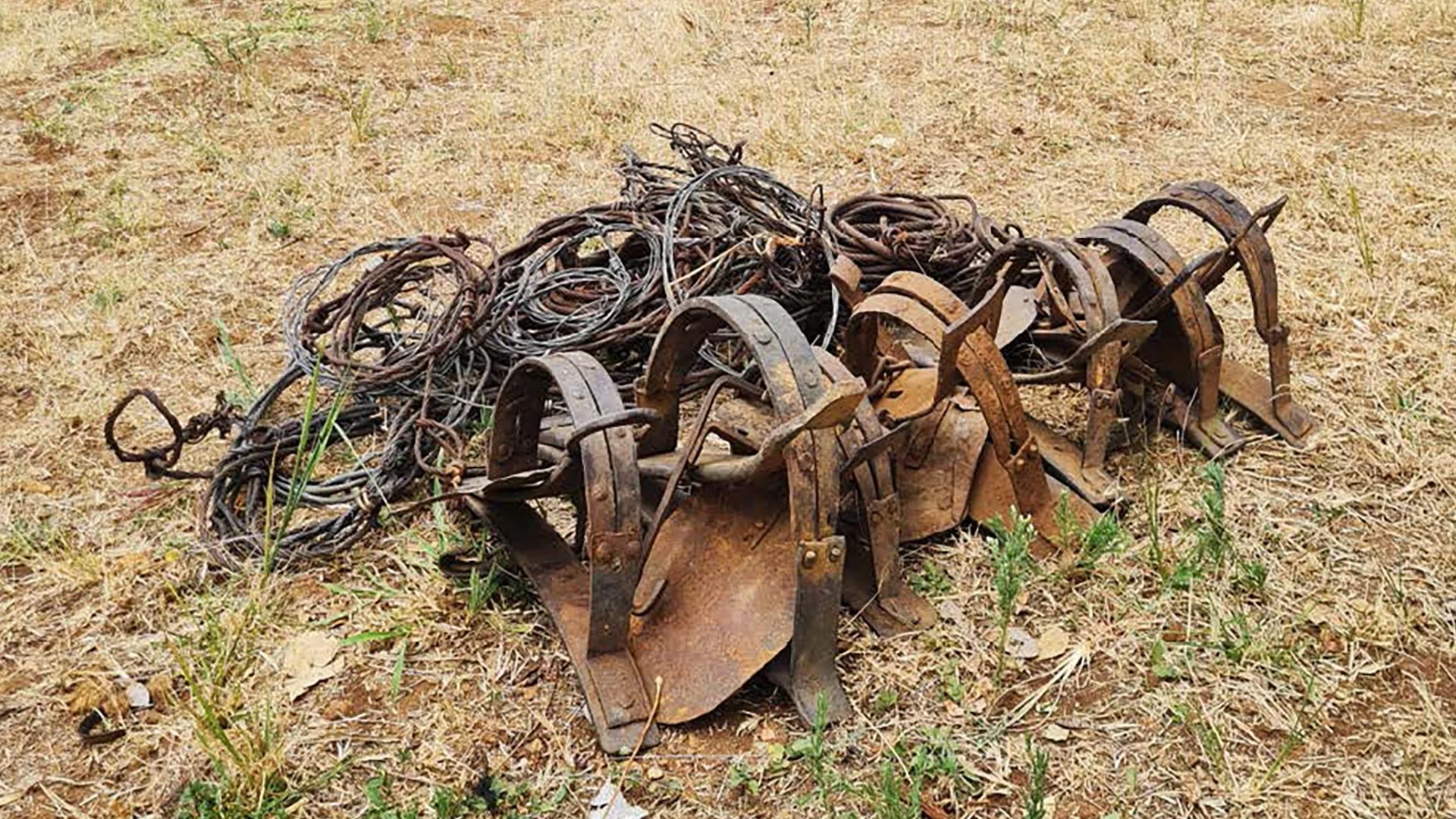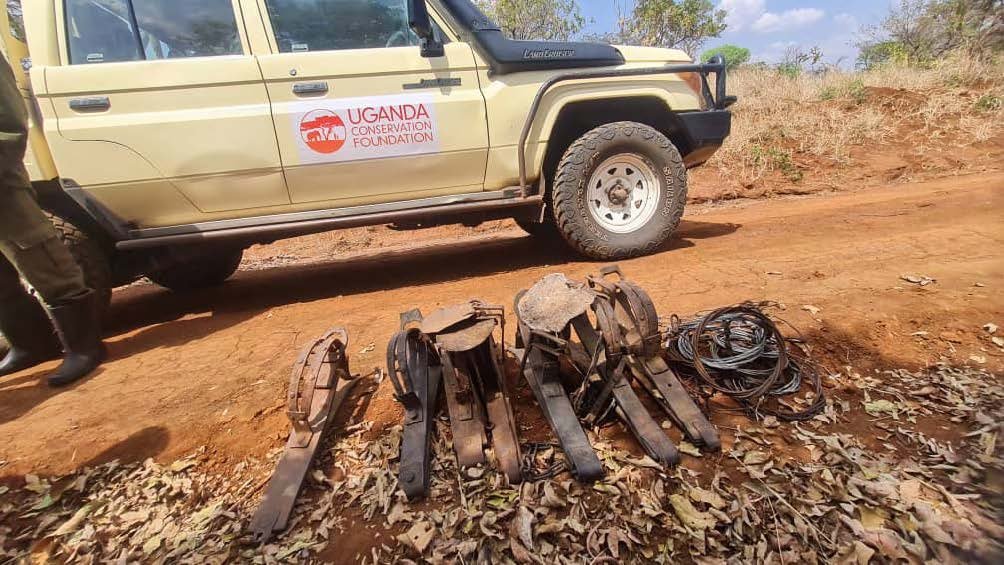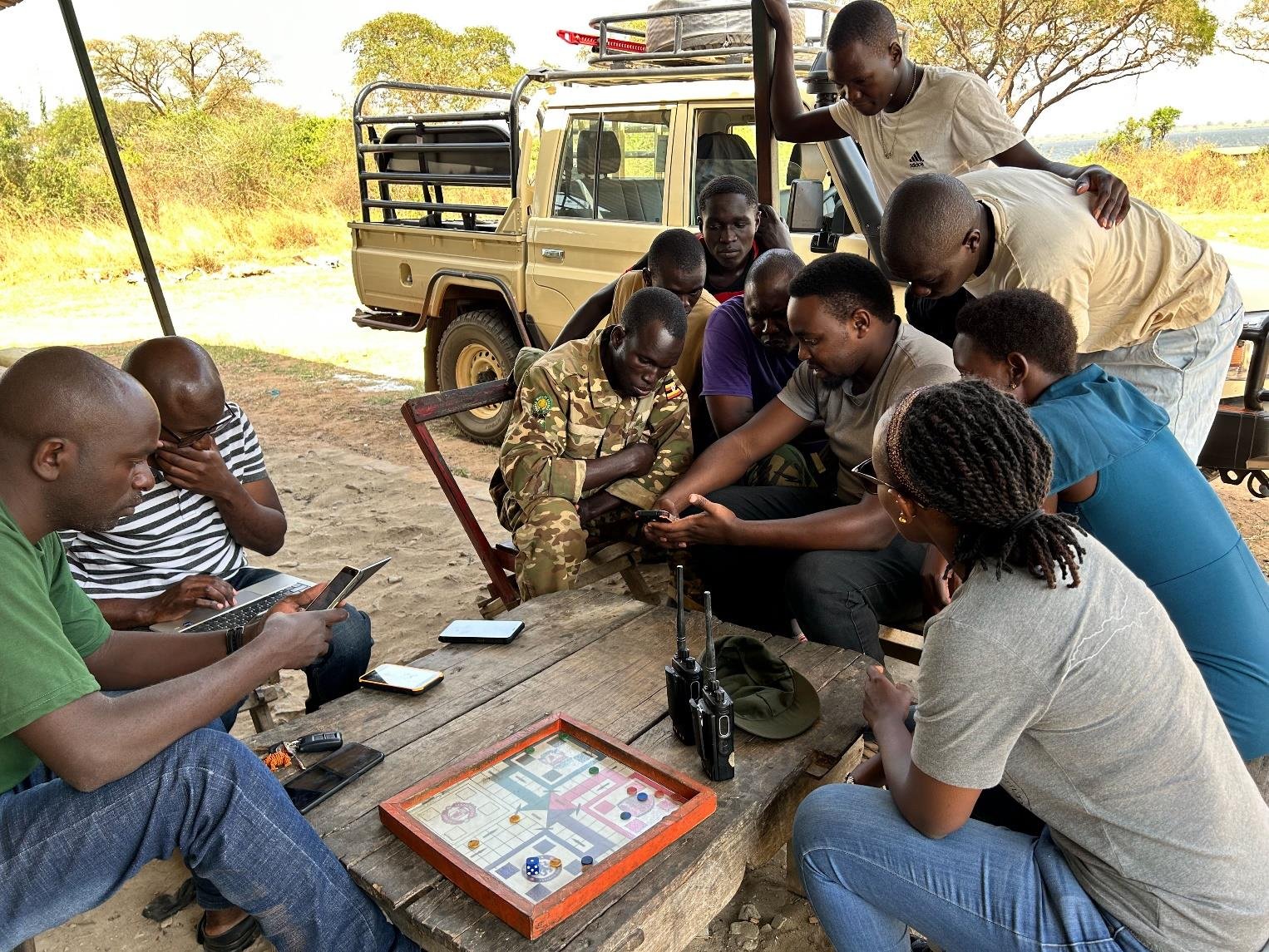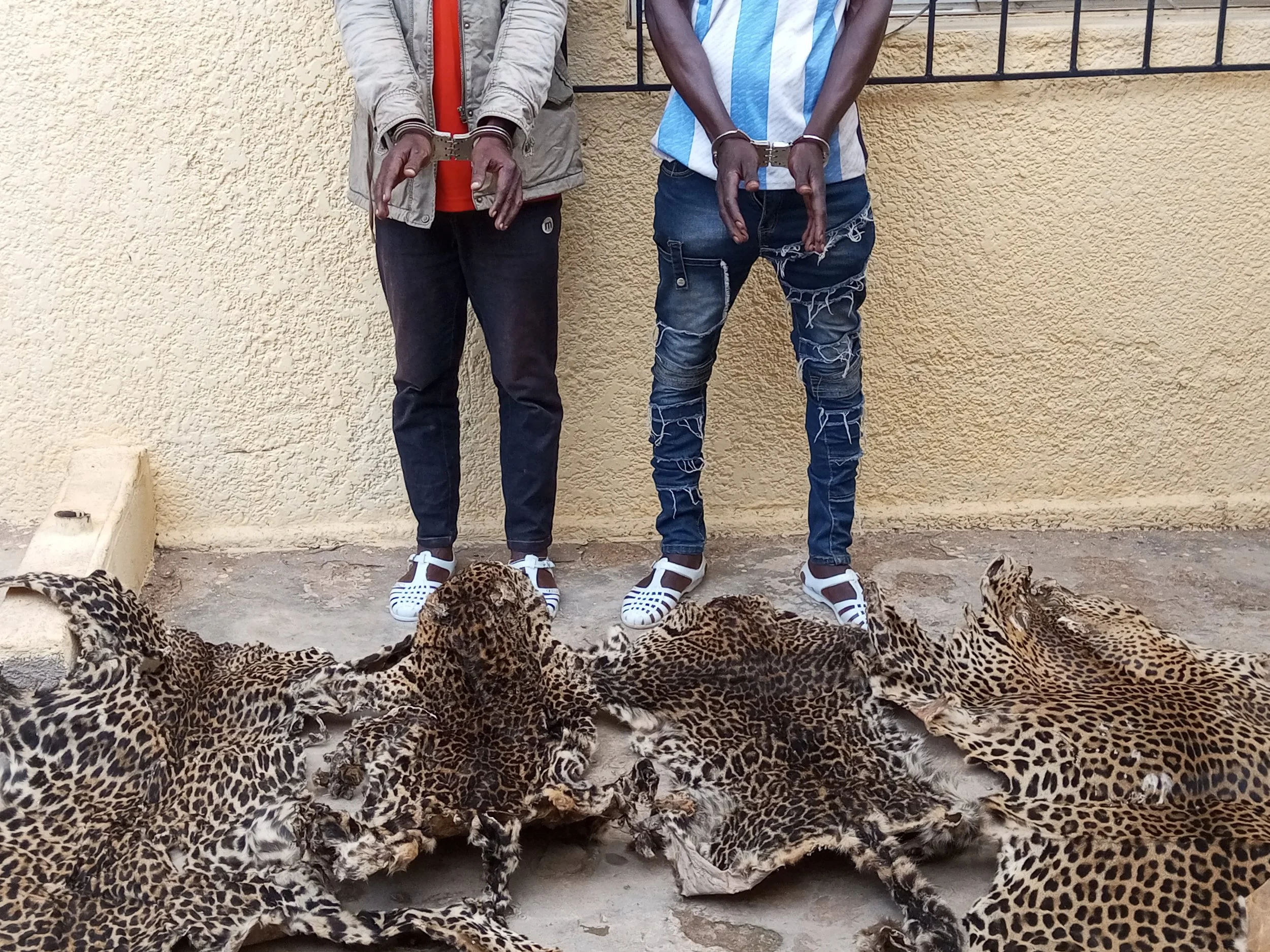GC Protects Kidepo Valley National Park, Uganda - 2024 Progress
While numbers of lions are desperately low, poaching has been minimized, and some lions from outside the park (likely South Sudan) have found refuge in Kidepo, where it is safer. The sustained effort to protect the last bastion of the region's northern subspecies is critical, and for that reason, the UCF team, with UWA, is scaling up operations in 2025 to have two dedicated operational cars in the park and an additional protection team. Photo ©shutterstock.com
Restoring Protected Area and Species Management in Kidepo Valley Conservation Area, Uganda
In 2023–2024, Global Conservation has been focused on restoring protected areas and species management in the Kidepo Valley Conservation Area, Uganda, and funding the Uganda Conservation Foundation from 2023 to 2024. In addition, GC and IEF funded a country-wide Digital Strategy and EarthRanger deployment for five endangered national parks, including Kidepo Valley, Murchison Falls, and Queen Elizabeth.
The emphasis in 2024 has been to regain control of the core areas of Kidepo Valley from the poachers and to dismantle their operations. Realistically, some areas of Kidepo have been unsafe. Additionally, with only one working vehicle for much of the year, UCF has had to carry many of the operational support roles. But throughout the year, that operational support—along with the initiative and leadership—has been essential.
Significant achievements have been made, especially in countering poaching and the removal of deadly wheel traps and snares that have decimated the lion population over the past five years. The UWA/UCF team has also identified and provided intense protection, as much as can be done given the threats to security and lions.
Kidepo Valley National Park. Photo ©shutterstock.com
The team in Kidepo has been led by Innocent Komakech, who is permanently based there, along with the driver Julius and six local community scouts. These scouts support community integration, including informant management and information gathering. UWA, the communities, and the scouts carefully manage this.
Building capacity has been core to success and the team has worked successfully with the ranger teams. Having an active support car and lead, along with training, development, and an increase in Kidepo’s support, has made an extraordinary difference.
UWA selected twenty rangers for training in Quick Reaction Force and Human Rights core subjects alongside UWAs teams from QE and Murchison. The course was put on by UCF at the new UWA Academy in Murchison Falls and is part of the development of UWA’s Law Enforcement & Operations strategy coordinated through the Joint Operations Command Centre. The course was also attended by Wardens in Charge of Law Enforcement.
The UCF/UWA Response to Carnivore Poaching
Poachers were incredibly targeted in their killing of carnivores and had killed over 80% of the region’s lions, the rare north African lion subspecies. All other theories for their decline were put aside and all funds and support were focused on stopping the poaching and saving any carnivores that might be trapped.
With satellite collars on, UCF and UWA have been able to target patrols to carnivore hotspots, including where they are around their prey. As a result, we have cleared areas of traps and arrested or chased away poachers.
UCF's young vet team successfully treated a snared leopard that the Carnivore and Scavenger Officer sighted. Following the intervention, the leopard has shown signs of healing.
Previously, leopard sightings were rare, predominantly due to lion densities being high. With lion densities low, leopards are increasing in numbers and being seen more regularly.
Collaring Simone was far from easy. He was not known to anyone in the area and likely came from South Sudan’s Kidepo Game Reserve. He was both dominant and shy—keeping away from people and tracks. However, with so few lions left, it was critical to collar him, not least to help us identify his movements and perhaps where females and cubs might be.
Collaring Carnivores
The team deployed into the highest-risk security areas, where lions were thought to be present, and some were found. Unfortunately, they were extremely shy and reclusive and sadly, when the opportunity improved, armed poacher gangs from South Sudan advanced on the UCF/UWA collaring teams.
Having recently lost one ranger to a similar/same group, the project leader instructed the team to leave the area, as while rangers were present, it was not their objective. The project leader then deployed the UWA/UPDF law enforcement teams to the region to either arrest the poachers or force them to return to South Sudan.
During the same week, two cheetahs were sighted in central Kidepo, which is not common.
Following the Cheetah Summit in Ethiopia in 2024, the opportunity was taken to collar Uganda’s first-ever cheetah. Samples were also taken to enable UWA/UCF to identify which of the subspecies Kidepo has. The successful collaring of the cheetah, Uganda's first ever, was a huge boost to the team.
With operational input from cheetah legend Dr. Laurie Marker, the Kidepo region, stretching across Karamoja and into western Kenya’s Turkana, could and should become Africa’s third viable population, including wild dogs. This is all within the scope of the efforts being made in the region with community conservancies connecting protected areas and landscapes.
Patrols—Countering Targeted Poaching
Background Information
UCF has a partnership with the Wildlife Crime Unit (WCU) in UWA. Core to this is Focus Conservation Services (FCS), a small organization employing professional intelligence and investigation people with career police (DEA/NCS) experience and expertise.
In 2024, UCF, UWA, and FCS partnered and won a grant with the Bureau of International Narcotics and Law Enforcement Affairs (INL). This grant does not include Kidepo but provides UCF and UWA with the ability to leverage skills into the illegal wildlife trade, including carnivores, which have covered the landscape. This initiative has already led to several significant arrests related to the illegal wildlife trade.
Law Enforcement Support
With support from GC’s grants, law enforcement operations were Understanding the modus operandi of the poachers, operations were also more targeted. Scouts from the community also supported rangers with information and snare sweeps.
There was an immediate decline in poaching incidents within core park areas. Predictably, poachers adjusted their tactics and areas of operation. However, poachers' ability to succeed remains limited, and they are finding their snares and traps. The program is realizing this success as it expands its operational capacity and reach. However, poaching remains a severe threat both inside and, especially, outside of the protected area. The positive trends highlight the effectiveness of the support and field operations.
The gradual expansion of informant networks enables patrols to discover and disrupt multiple poacher camps, make arrests, and confiscate numerous illegal implements.
The driver, project officer, and scouts are employed, equipped, and operational thanks to the Global Conservation/March Conservation Fund grant. The car has traveled over 40,000km since its deployment to Kidepo.
Technology in Conservation
In Q4 2024, UWA confirmed their strategy included the roll-out of a country-wide EarthRanger system. Emphasis has been on ensuring the Kidepo landscape is ready for the UWA Digital Strategy rollout. The KVCA includes Karamoja, a vast area crucial for regional conservation. With the Joint Operations Command Centre already built, internet in, and the basics in place, Kidepo currently has ten EarthRanger Mobile phones operational in Kidepo Valley, using the initial ‘standalone’ EarthRanger iteration.
These phones and the existing iteration of ER will be repurposed into the new system, with the new phones added to expand reach into Karamoja and the developing community-owned and managed conservancies. Ten new phones have been purchased by matching funding partners.
The EarthRanger Operator and Analytics team are actively participating and executing the system rollout. Towers, power, and digital radios, along with LoRaWAN, will quickly ensure the coordination of peace and security in the region; improved conservation and development are far more easily realized.
Global Conservation is funding the UWA Digital Strategy through Off Grid Consulting, a system and Governance Framework that places UWA as the ‘global best practice’ user for other protected areas to follow. All advances made in this project will be openly shared to help support conservation globally.
Building Capacity, Leadership and Belief
With the support of partners and the Global Conservation/MCF grant, over 50 personnel received training in three crucial operational areas:
1. Quick Reaction Force—20 of Kidepo’s frontline team were selected to be the start of the QRF team. Training was carried out at the new UWA Academy in Murchison Falls and included two UWA Law Enforcement Wardens.
2. Human Rights—increasing scrutiny and advances in policy require front-line rangers to be updated, including their own rights, which are often compromised in contacts. The World Bank in Uganda is currently focused on sustaining this training, with the project lead.
3. Operations Room Management and Radio Communications—three training waves have been carried out, one in QE and two in Murchison Falls.
Sustaining Development and Conservation Progress
Despite the considerable constraints and challenges, the Kidepo landscape, thanks to Global Conservation and MCF, has countered the surge in poaching. Moreover, the program is now escalating capacity and reinforcing conservation management and development activities across the landscape.
The coordination of almost all investments extends well beyond Kidepo, connecting to both national and regional development programs, a crucial element often absent in conservation efforts. This includes global best practice developments, which will be openly available to others, and tangible development investments that support the sustainability of both development and conservation economies in the landscape.






















